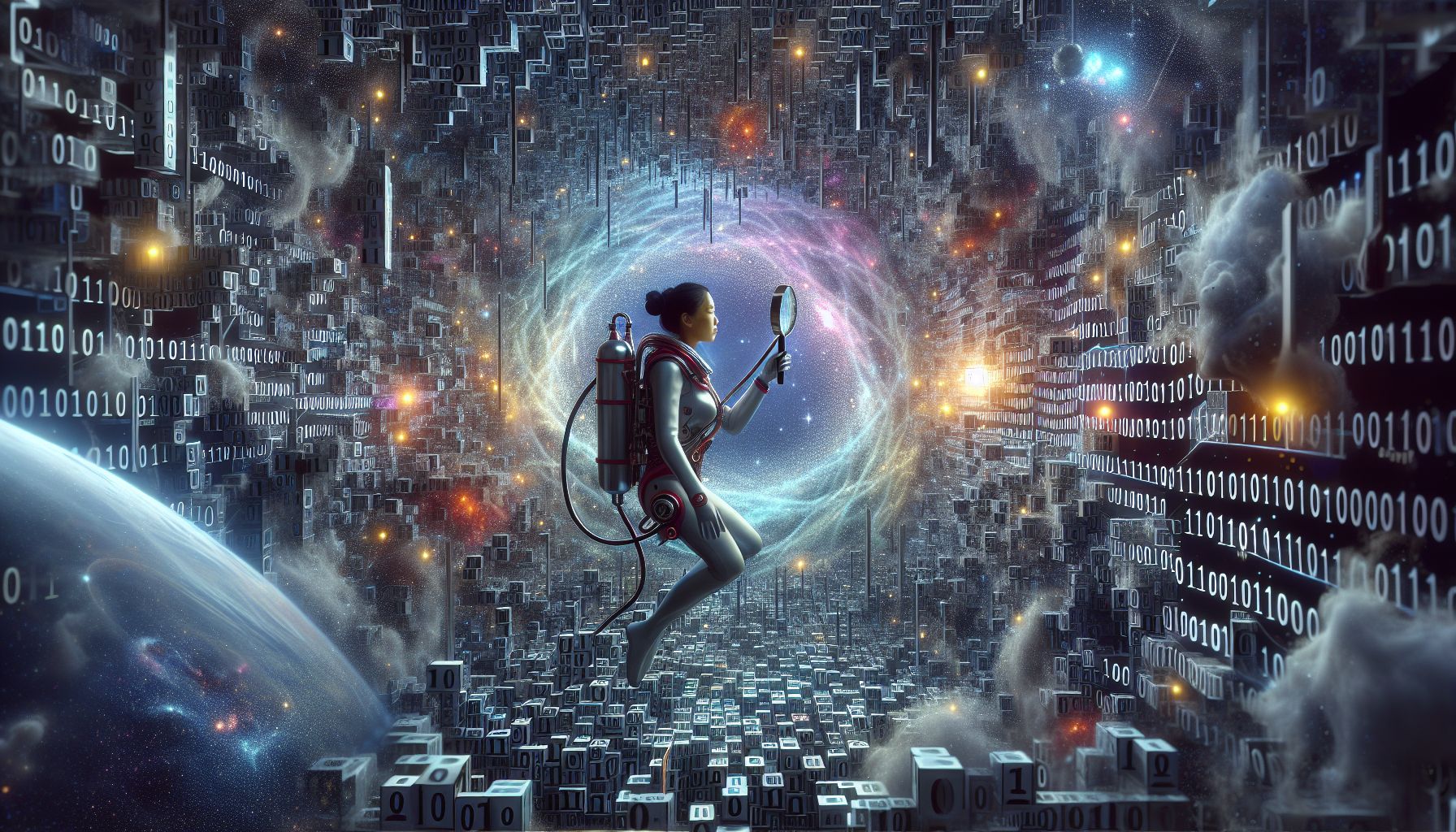📌 Let’s explore the topic in depth and see what insights we can uncover.
⚡ “Imagine a computer that could outperform all of humanity’s combined brainpower. Welcome to the mesmerizing and mind-bending world of Quantum Computing!”
Quantum computing is no longer just a concept studied in advanced physics classes or discussed among theoretical scientists. Today, it’s a real and rapidly developing field that promises to revolutionize technology, data analysis, cryptography, and more. But what exactly is quantum computing, and why is it so important? In this blog post, we’re going to dive deep into the world of quantum computing. We’ll explore the principles behind it, how it works, its potential applications, and the challenges it faces. It’s an exciting and complex topic, so let’s buckle up and get ready for a quantum leap into the future! 🚀
🧩 Understanding the Basics: Quantum Bits & Superposition

"Diving Into the Quantum Computing Universe"
Traditional computers, which we’ll call classical computers in this context, operate using bits. A bit is the most basic unit of data in computing, and it can be either a 0 or a 1. Quantum computers, on the other hand, use quantum bits, or qubits. Unlike classical bits, qubits can exist in a state of 0, 1, or both at the same time, thanks to a property called superposition. Imagine you’re flipping a coin. In classical computing, it’s either heads or tails, but in the world of quantum computing, it’s as if the coin is both heads and tails at the same time while it’s in the air! That’s superposition for you. 🪙 This ability to exist in multiple states simultaneously is what gives quantum computers their potential power. While a classical computer deals with bits one at a time, a quantum computer can process a vast number of possibilities all at once.
🔄 Entanglement: The Quantum Dance 💃
Another crucial principle in quantum computing is entanglement. 🔍 Interestingly, a phenomenon where two qubits become linked, such that the state of one immediately influences the state of the other, no matter how far apart they are. This isn’t something we see in our everyday world, but it’s a fundamental part of quantum physics. Think of entanglement as a cosmic dance. Two dancers (qubits) on opposite ends of the universe start twirling, and no matter how far apart they are, they can perfectly match each other’s moves instantly. This quantum dance, or entanglement, allows quantum computers to perform complex calculations at an astonishing speed.
💾 Quantum Computing Applications: A New Frontier
The potential applications of quantum computing are vast and exciting. Here are a few areas where quantum computers could make a significant impact:
Cryptography
Quantum computers have the potential to crack even the most complex cryptographic codes, posing both a risk and an opportunity for the world of data security.
Drug Discovery
Quantum computers could help analyze and simulate molecular structures, accelerating the process of drug discovery and potentially saving millions of lives.
Climate Modelling
By processing vast amounts of climate data, quantum computers could help us understand and mitigate climate change more effectively.
Financial Modelling
Quantum computing could revolutionize the way we model financial markets, optimizing portfolios and managing risk more efficiently.
Artificial Intelligence
Quantum computing could supercharge machine learning and AI, leading to faster, more accurate predictions. However, it’s important to note that these are potential applications. Quantum computers are still in their infancy, and we’re only just beginning to understand their potential.
🚧 The Challenges Ahead: Decoherence & Error Correction
While quantum computing holds immense promise, it also faces significant challenges. One of the biggest is decoherence. In quantum computing, the qubits need to be in a state of superposition to work effectively. However, qubits are sensitive to their environment and can lose their superposition state due to factors like temperature changes or electromagnetic waves. 🔍 Interestingly, known as decoherence, and it can lead to computational errors. Another challenge is error correction. In classical computing, we have robust methods to check for and correct errors. But in quantum computing, traditional error correction methods don’t work because measuring a qubit can change its state. 🧩 As for Scientists, they’re still working on effective error correction methods for quantum computing.
🧭 Conclusion: A Quantum Leap into the Future
Quantum computing is a fascinating and complex field that could revolutionize numerous sectors. The principles of superposition and entanglement give quantum computers their potential power, and the possible applications range from cryptography and drug discovery to climate modelling and AI. However, we’re still in the early days of quantum computing. Significant challenges, such as decoherence and error correction, need to be overcome before quantum computers can fulfill their potential. Nevertheless, the field is advancing rapidly, and it’s an exciting time to dive into the world of quantum computing. As we stand at the edge of this new frontier, we’re not just exploring a new type of computing. We’re delving into the fundamental principles of the universe. So let’s keep exploring, learning, and pushing the boundaries of what’s possible. After all, isn’t that what quantum computing is all about?
🚀 Curious about the future? Stick around for more discoveries ahead!
